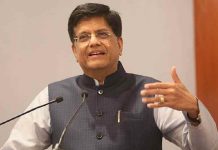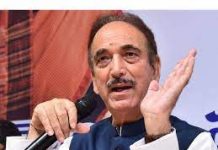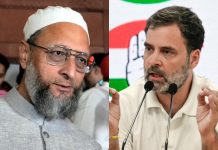
EDITED EXCERPTS FROM AN INTERVIEW
How important is international recognition of this sort to you as a filmmaker directing her first feature?
Firstly, for any independent filmmaker, it is very difficult to secure the finances for a film that you want to make. I made the rounds of knocking on doors of Bollywood production houses and clearly it didn’t work for me. When I decided to do it my way, collecting funds and co-producing with my husband, an Indian release was a very far fetched thing. For me, the biggest thing would be to show this film to an audience. We don’t make films to get awards, or for a festival run. The idea is to release it in theatres; that is our dream. So, when a film gets such recognition, invariably the opportunities of seeing a release increase. In that way, I am very excited. Sundance happened because people there liked it and that is great. Right now, I am more excited for my team. We can see a possibility of a release next year, which is the most exciting thing for me.
This is your first feature as a director after a fairly successful career as an actor. Was this a transition you always wanted to make?
It was a transition I wanted to make. I used to write all the time. I was an actor for over a decade, and I think somewhere down the line it was a very smooth transition because, apart from doing a lot of commercial films, I was part of some very interesting cinema that travelled to a lot of film festivals. In fact, the last film I acted in, Adoor Gopalakrishnan’s The Four Women, went to a lot of festivals. So, the exposure has always been there. Directing was something that was planned, not something that just happened. It was something that I wanted to do and I worked towards it.
You said somewhere that the film is about “people becoming just statistical information”. How did this plot come about?
When I try to jog my memory thinking how it all happened, I know it took shape as a very simple story that I wanted to tell. And what happened is, when you group the story geographically to a particular setting, the socio-political scenario of that space becomes the undercurrent of the narrative. And that’s how I would like to see this film, because rather than telling a very superficial story, it is important to root it, to make the characters believable from that area and address their issues. The idea came to me a long time back, some six or seven years ago, and over the years so much has changed. Even I have changed, through so many drafts. So, if I try to think back on how it all started, I don’t even remember the reason for which this stream of thought began. But I know that somewhere down the line I was concerned with our attitude towards people who suffer calamities. A tragedy occurs and they become just statistics. There are so many nameless people in our country, and that’s how we remember them. It’s not an area which has not been covered before; it has been done many times. But in cinema, there are only so many situations that you can do this way or that way. I wanted to do something different. However, while narrating a film with such political undercurrents, I am also telling a very simple love story of two unlikely individuals who can’t stay together.
Casting Nawazuddin Siddiqui in one’s film seems to be a great way to get attention and accolades. What does he bring to the table as an actor and as a source of indie cred?
When we shot with him at the beginning of last year, he was definitely somebody who was out there, but his more popular films were just releasing. It wasn’t a difficult choice for me to cast him, because we worked the film in such a way that the actor would be released on street amongst very normal people. We shot in real time and real space, with real people. It was an action and reaction that happened. So for me to get the kind of result I wanted, it was important for me to have an intelligent actor, who is somebody I can, you know, let out on the streets. Nawazuddin, at that point, was not as popular as he is now, which worked in my favour. Over the last year, I have seen him grow. He happened to be at the right place at the right time, doing the right films, which happened to go to a lot of international forums and festivals. So, certainly, that has helped me and my film, especially when a movie like this hits a film festival and they see Nawazuddin as a part of the film, and say, “Oh, so if he’s doing it, the film has to be good!” Few actors have that kind of effect, and Nawazuddin is a household name outside India as well. But all this was not planned, it just happened. What he brings to the table is that he just brings the character to life. For a filmmaker, 50 percent of the work is casting, because no matter how much you plan ahead, it all depends on what the actor gives you on the set. And he is completely a director’s actor, he is extremely receptive. He listens to the director; wants to know more about the character. We had a lot of workshops before the film began because of a little child in our cast. But apart from that, most of the dialogues were written on the spot and were his own. I had a skeleton of the script, but I did not believe in writing dialogues and making actors say what I wanted them to say. I would tell them that this is the idea and I would just allow them to explore all the dynamics of the character.
You started your career as a five-year-old in Onnu Muthal Poojyam Vare, the same age as Manya Gupta in your film. How did your experience help you direct Manya?
I remember how people used to behave with me and talk to me with a lot of patience and with a lot of love. That is something I remembered. I am a very patient person because I have a one-year old. I had also worked with a four-year-old blind girl in my short film, which won a National Award in 2010. So, for me, it was not very difficult to work with Manya. I love being with children. I don’t tell them too many things, I don’t ask them to learn too many dialogues. I treat them as little adults. Whatever I would tell Nawaz or Geetanjali, I would tell Manya as well. But, of course, with a little more patience.













